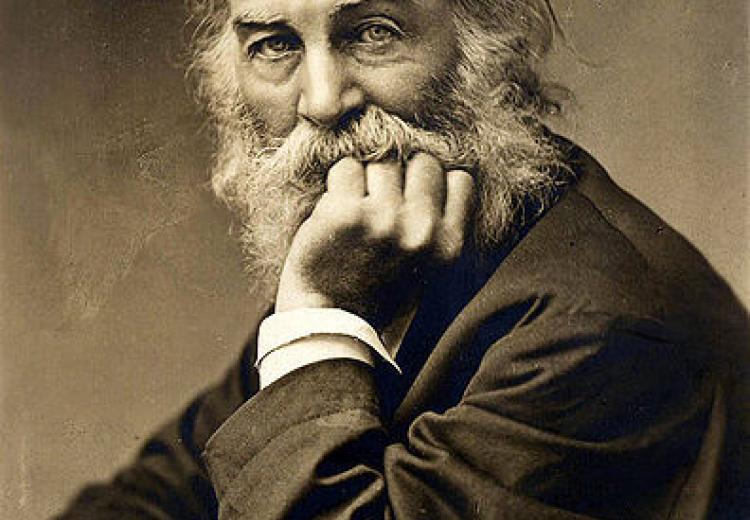Walt Whitman to Langston Hughes: Poems for a Democracy

Photo of American poet Walt Whitman taken by G. Frank E. Pearsall, c. 1869
"I will… go with drivers and boatmen and men that catch fish or work in fields. I know they are sublime."
—From Walt Whitman's Notebook Page 65, LOC #80
"Hughes refused to differentiate between his personal experience and the common experience of black America. He wanted to tell the stories of his people in ways that reflected their actual culture, including both their suffering and their love of music, laughter, and language itself."
—From the Biography of Langston Hughes
Did Whitman succeed in creating a revolutionary, original, and truly American form of verse? However we answer the question, it is certain that the example of the "Good Grey Poet" has had a profound influence on subsequent generations of American poets. In this lesson, students will explore the idea of "democratic poetry" by reading Whitman's words in a variety of media, examining daguerreotypes taken circa 1850, and comparing the poetic concepts and techniques behind Whitman's I Hear America Singing and Langston Hughes' Let America Be America Again. Finally, using similar poetic concepts and techniques, students will have an opportunity create a poem from material in their own experience.
Guiding Questions
What makes a poem democratic?
To what extent did these poets experience democracy differently?
Learning Objectives
Analyze and compare Whitman's "I Hear America Singing" with Hughes' "Let America Be America Again".
Evaluate the democratizing effect of early photography and relate that to the poetry of Whitman and Hughes.
Assess the way in which each poet conceptualizes democracy in theory and in practice in the United States.
